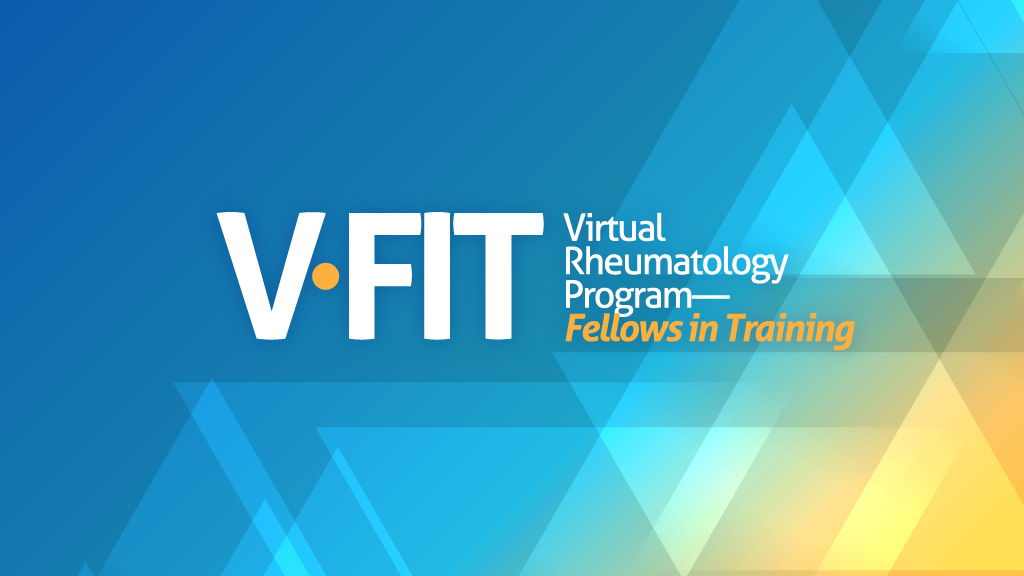
V-FIT: Adult and Pediatric
Activity Overview
The Virtual Rheumatology Program for Fellows in Training (V-FIT) is a collection of online programs developed by rheumatology experts to address specific educational needs of fellows-in-training. V-FIT includes four online courses: Virtual Rheumatology Learning Collaborative (ViRL), Virtual Rheumatology Practicum for Adult Rheumatology Fellows (ViP Adult), Virtual Rheumatology Practicum for Pediatric Rheumatology Fellows (ViP Pediatric), and Virtual Rheumatology Teaching Lessons (ViTLs).
This activity includes 160+ online lectures from all four programs pertaining to both adult and pediatric rheumatology, covering topics such as:
- Antiphospholipid Syndrome
- Autoinflammatory Diseases
- Cancer and Rheumatology
- COVID-19 and Rheumatology
- Connective Tissue Disease-Related Interstitial Lung
- Crystal-Induced Arthropathies
- Fever Associated Rheumatic Disorders
- Immunology for Rheumatologists
- Inborn Errors of Immunity
- Infections and Related Arthritides
- Inflammatory Eye Disease
- Introduction to Pediatric Rheumatology
- Juvenile Idiopathic ArthritisLupus
- Miscellaneous Rheumatic Disorders
- MSK Exam
- MSK Radiology
- Myositis
- Osteoarthritis
- Osteoporosis
- Pain Syndromes
- Patient Care
- Pediatric Joint Pain
- Research and Scholarship
- Rheumatoid Arthritis
- Rheumatologic Emergencies
- Rheumatology and Reproductive Health
- Rheumatology Labs
- Scleroderma
- Seronegative Spondyloarthropathies
- Sjogren's Syndrome
- Succeeding in Fellowship
- Therapeutics and Injections
- Vasculitis
This program is designed for educational purposes only. The material presented is not intended to represent the only or the best methods appropriate for the medical situations discussed, but rather is intended to present the opinions of the authors or presenters, which may be helpful to other practitioners. Attendees participating in this education activity sponsored by the ACR do so with full knowledge that they waive any claim they may have against the ACR for reliance on any information presented during this educational activity.
Registration is complimentary.
Target Audience
The activity was created for fellows-in-training but is also relevant to primary care physicians and other rheumatology professionals, such as registered nurses, nurse practitioners, occupational therapists, physical therapists, pharmacists, physician assistants.
Acknowledgement of Commercial Support
The ACR thanks Pfizer, Inc. for independent medical educational grant support of the V-FIT programs.
Educational Activity Policies
See ACR educational activity policies, including the online enduring activity refund policy.